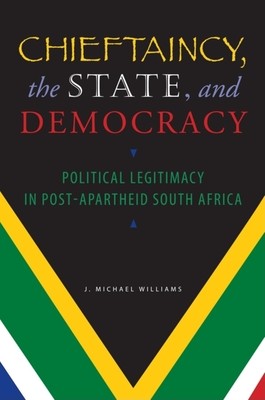
- We will send in 10–14 business days.
- Author: J Michael Williams
- Publisher: Indiana University Press
- ISBN-10: 0253221552
- ISBN-13: 9780253221551
- Format: 15.5 x 22.6 x 2.3 cm, minkšti viršeliai
- Language: English
- SAVE -10% with code: EXTRA
Reviews
Description
As South Africa consolidates its democracy, chieftaincy has remained a controversial and influential institution that has adapted to recent changes. J. Michael Williams examines the chieftaincy and how it has sought to assert its power since the end of apartheid. By taking local-level politics seriously and looking closely at how chiefs negotiate the new political order, Williams takes a position between those who see the chieftaincy as an indigenous democratic form deserving recognition and protection, and those who view it as incompatible with democracy. Williams describes a network of formal and informal accommodations that have influenced the ways state and local authorities interact. By focusing on local perceptions of the chieftaincy and its interactions with the state, Williams reveals an ongoing struggle for democratization at the local and national levels in South Africa.
EXTRA 10 % discount with code: EXTRA
The promotion ends in 23d.19:06:15
The discount code is valid when purchasing from 10 €. Discounts do not stack.
- Author: J Michael Williams
- Publisher: Indiana University Press
- ISBN-10: 0253221552
- ISBN-13: 9780253221551
- Format: 15.5 x 22.6 x 2.3 cm, minkšti viršeliai
- Language: English English
As South Africa consolidates its democracy, chieftaincy has remained a controversial and influential institution that has adapted to recent changes. J. Michael Williams examines the chieftaincy and how it has sought to assert its power since the end of apartheid. By taking local-level politics seriously and looking closely at how chiefs negotiate the new political order, Williams takes a position between those who see the chieftaincy as an indigenous democratic form deserving recognition and protection, and those who view it as incompatible with democracy. Williams describes a network of formal and informal accommodations that have influenced the ways state and local authorities interact. By focusing on local perceptions of the chieftaincy and its interactions with the state, Williams reveals an ongoing struggle for democratization at the local and national levels in South Africa.


Reviews